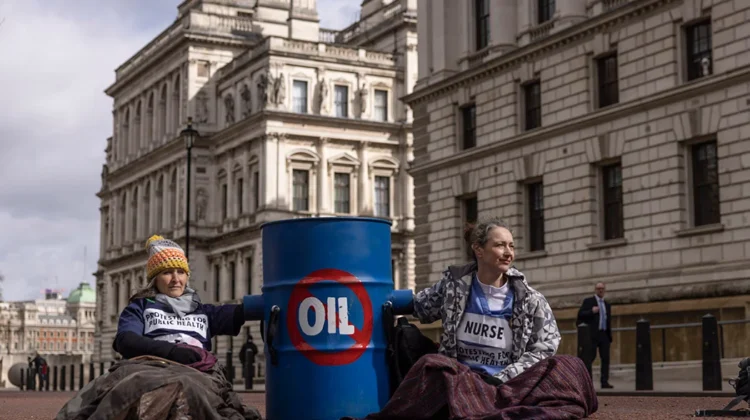
This article is a republication from JSTOR Daily. It examines the complexities behind the call to stop oil and the broader systemic changes required for a sustainable future.
Groups like Just Stop Oil are advocating for urgent action, but their demands should be viewed beyond mere slogans. Human activity is on track to raise global temperatures by more than 2.5°C above pre-industrial levels, even if all current emission-reduction policies are fully implemented (Our World in Data). Such a scenario could displace about one-third of the global population, leading to domicide, widespread hunger, and extreme poverty for millions, if not billions, of people. The crisis must be understood not just as a technical challenge but as a profound humanitarian issue, as detailed in discussions of historical context and impacts (Domicide).
A major driver of this crisis is the continued use of fossil fuels, with more than 80% of global energy still sourced from oil and coal as of 2024. Decarbonization remains essential but is hampered by inadequate renewable energy infrastructure and the legacy of climate injustice. Developing countries face a dilemma: should they be denied the chance to industrialize when it is crucial for economic growth and poverty alleviation? This question is rooted in a historical context where America’s reliance on fossil fuels began, shaping the global energy landscape (JSTOR Daily).
Climate activism groups like Just Stop Oil and Extinction Rebellion are vocal in their demands for change, targeting numerous companies and institutions. However, the power to enact meaningful change varies among these entities. Fossil fuel executives, for example, hold influential positions but are constrained by their obligations to shareholders and profit maximization. Acting against these interests often results in their replacement, illustrating the systemic nature of the issue. The historical role of fossil fuel companies in spreading misinformation, which has greatly exacerbated the climate crisis, remains a critical but distinct aspect of their capacity to drive current change.
Further up the chain of accountability are the shareholders, primarily institutional investors who manage these companies. They too are bound by fiduciary duties to maximize profits, perpetuating a system that prioritizes financial returns over environmental stewardship. As long as fossil fuel extraction remains profitable, these shareholders are legally compelled to maintain their stakes. It’s a self-destructive cycle that underscores the structural flaws within the system.
Consumer demand is another critical factor sustaining fossil fuel profitability. The choices people make—flying, driving petrol cars, using plastics—are often dictated by socio-technical lock-in, where sustainable alternatives are either unavailable or prohibitively expensive. While electric vehicles and renewable options are gradually becoming more accessible, initial costs remain a barrier for many consumers, reinforcing the reliance on less sustainable choices. Behavioral economics highlights this lack of true consumer choice as a key issue that needs addressing.
Governments, with their power to regulate, tax, and redistribute, hold the unique capacity to intervene in market failures and shift both supply and demand. While some governments have been slow to act due to political or economic reasons, their role in managing the crisis is undeniable. Subsidizing electric vehicles, regulating building efficiency, and supporting climate-friendly technologies through concessional financing are examples of measures that could significantly alter the current trajectory.
Ultimately, while fossil fuel executives and investors bear significant responsibility for the climate crisis, their potential to rectify the situation is severely limited by the market structures in which they operate. The true power lies with governments, the policymakers capable of rewriting the rules of the game. For real progress, climate activism must focus its efforts on holding these key decision-makers accountable and advocating for systemic changes that can pave the way for a sustainable future (Mithaqi; Mithaqi; JSTOR Daily).

Leave a Reply